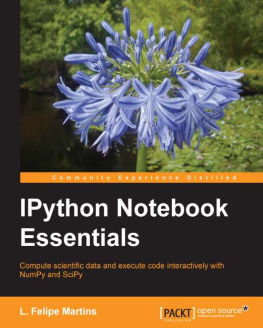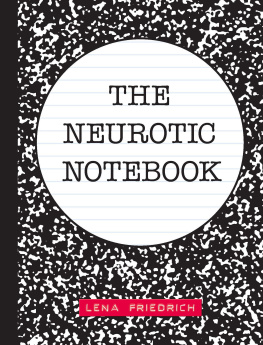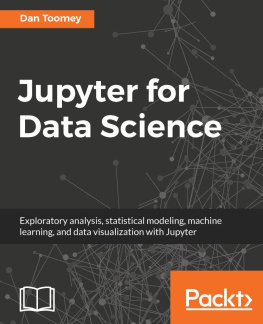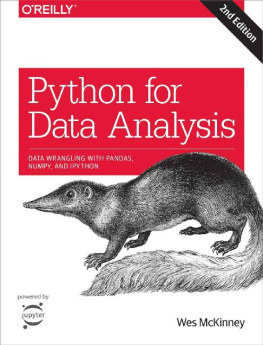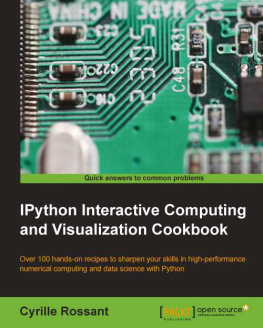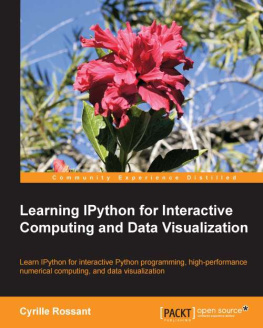About the Reviewers
Sagar Ahire is a Master's student in Computer Science. He primarily studies Natural Language Processing using statistical techniques and relies heavily on Pythonspecifically, the IPython ecosystem for scientific computing. You can find his work at github.com/DJSagarAhire.
I'd like to thank the community of Python for coming together to develop such an amazing ecosystem around the language itself. Apart from that, I'd like to thank my parents and teachers for supporting me and teaching me new things. Finally, I'd like to thank Packt Publishing for approaching me to work on this book; it has been a wonderful learning experience.
Steven D. Essinger, Ph.D. is a data scientist of Recommender Systems and is working in the playlist team at Pandora in Oakland, California. He holds a PhD in Electrical Engineering and focuses on the development of novel, end-to-end computational pipelines employing machine-learning techniques. Steve has previously worked in the field of biological sciences, developing Bioinformatics pipelines for ecologists. He has also worked as a RF systems engineer and holds numerous patents in wireless product design and RFID.
Steve may be reached via LinkedIn at https://www.linkedin.com/in/sessinger.
David Selassie Opoku is a developer and an aspiring data scientist. He is currently a technology teaching fellow at the Meltwater Entrepreneurial School of Technology, Ghana, where he teaches and mentors young entrepreneurs in software development skills and best practices.
David is a graduate of Swarthmore College, Pennsylvania, with a BA in Biology, and he is also a graduate of the New Jersey Institute of Technology with an MS in Computer Science.
David has had the opportunity to work with the Boyce Thompson Institute for Plant Research, the Eugene Lang Center for Civic and Social Responsibility, UNICEF Health Section, and a tech start-up in New York City. He loves Jesus, spending time with family and friends, and tinkering with data and systems.
David may be reached via LinkedIn at https://www.linkedin.com/in/sdopoku.
www.PacktPub.com
Support files, eBooks, discount offers, and more
For support files and downloads related to your book, please visit www.PacktPub.com.
Did you know that Packt offers eBook versions of every book published, with PDF and ePub files available? You can upgrade to the eBook version at > for more details.
At www.PacktPub.com, you can also read a collection of free technical articles, sign up for a range of free newsletters and receive exclusive discounts and offers on Packt books and eBooks.
http://PacktLib.PacktPub.com
Do you need instant solutions to your IT questions? PacktLib is Packt's online digital book library. Here, you can search, access, and read Packt's entire library of books.
Why subscribe?
- Fully searchable across every book published by Packt
- Copy and paste, print, and bookmark content
- On demand and accessible via a web browser
Free access for Packt account holders
If you have an account with Packt at www.PacktPub.com, you can use this to access PacktLib today and view 9 entirely free books. Simply use your login credentials for immediate access.
"To my wife, Ieda Rodrigues, and my wonderful daughters, Laura and Diana."
Preface
The world of computing has seen an incredible revolution in the past 30 years. Not so long ago, high-performance computations required expensive hardware; proprietary software costing hundreds, if not thousands, of dollars; knowledge of computer languages such as FORTRAN, C, or C++; and familiarity with specialized libraries. Even after obtaining the proper hardware and software, just setting up a working environment for advanced scientific computing and data handling was a serious challenge. Many engineers and scientists were forced to become operating systems wizards just to be able to maintain the toolset required by their daily computational work.
Scientists, engineers, and programmers were quick to address this issue. Hardware costs decreased as performance went up, and there was a great push to develop scripting languages that allowed integration of disparate libraries through multiple platforms. It was in this environment that Python was being developed in the late 1980s, under the leadership of Guido Van Rossum. From the beginning, Python was designed to be a cutting-edge, high-level computer language with a simple enough structure that its basics could be quickly learned even by programmers who are not experts.

